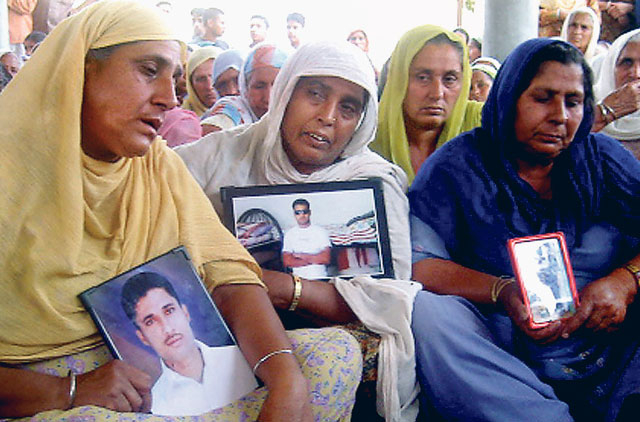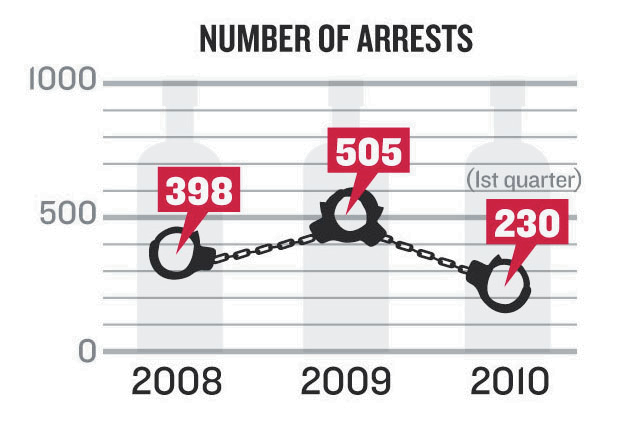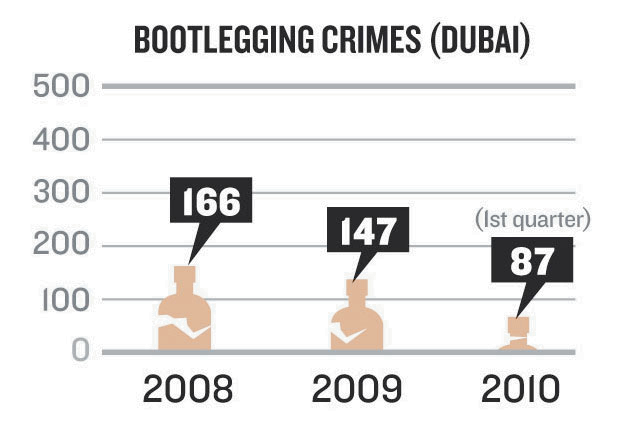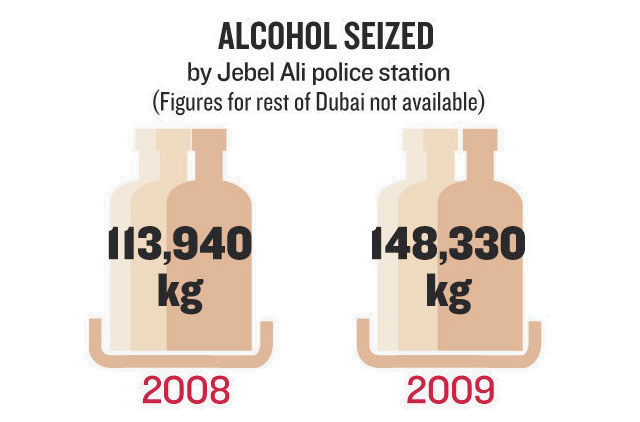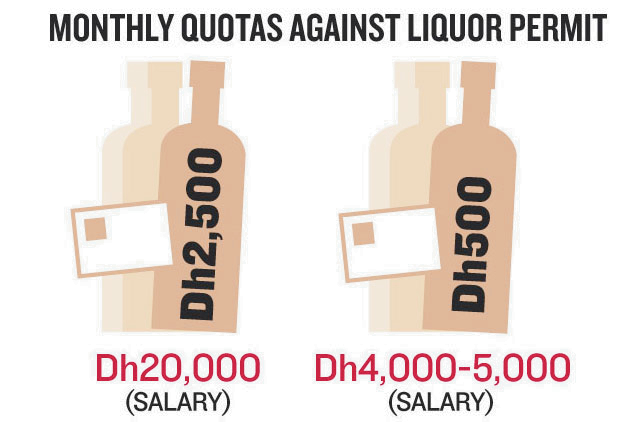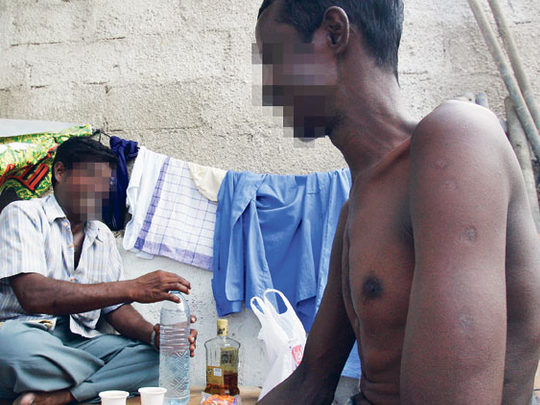
Dubai: It was like any other day at the Al Saja'a camp in Sharjah on January 10, 2009. Rented out to a Dubai-based construction company, the camp housed around 400 workers, including masons, carpenters and drivers. Bottle-toting bootleggers may have been active, as was routinely alleged, on their bicycles behind the camp. But as one driver Jagvinder Singh recalled, "There was nothing amiss that evening."
But at 7pm, there was a sudden spurt of violence. Misri Nazir Khan, a Pakistani, was attacked by 50 Indian men following an alleged fall-out between two rival groups of bootleggers, each claiming control over the lucrative Al Saja'a territory.
By 9.35pm, Khan lay unconscious, his head split wide open, while four of his companions were injured. A Mitsubishi pick-up truck took them to Kuwaiti Hospital where Khan was declared dead and the rest treated for their injuries.
On January 13, Sharjah Police picked up eight men from room No 3 of the camp on charges of rioting in connection with the incident. This was followed by more arrests in the next two weeks.
Today, as Daljeet Singh, one of those arrested from room No 3 and 16 others stand on death row after the Lower Court of Sharjah convicted them over Khan's murder, the fall-out of bootlegging as a thriving business in the UAE raises uncomfortable questions, answers to which remain elusive.
According to sources, the illegal trade of liquor is rampant across the emirates, with Sharjah believed to be the most profitable market. Although Sharjah bans the public sale and consumption of alcohol, non-Muslim expatriates are allowed to purchase liquor from duty-free shops at the airport or from outside the emirate with permits, said Colonel Abdullah Sultan, Director of the Communication Department at Sharjah Police.
In Dubai, supplies are restricted through the airport's duty-free outlets besides licensed shops like African & Eastern (A&E) and Maritime Mercantile International (MMI), where non-Muslims with permits can buy liquor.
Prices beyond reach
However, these stores cater to only a small section of the expat population, as they are out of the reach of labourers and even the middle and upper classes who find their prices prohibitive. Moreover, the permits which come for Dh160 are to be periodically renewed and stipulate a fixed quota of purchase (see box). As a result, there is a huge demand that keeps the underground market alive.
Lt Col Jamal Al Jallaf, Director of the Criminal Monitoring Department at Dubai Police, told XPRESS that bootlegging has registered a sharp increase in 2010, with 16 groups found operating in the first quarter, as against 33 in the whole of 2009 and 22 in 2008.
He said 230 suspects, involved in bootlegging activities or related crimes, were arrested in the first quarter of 2010 as against 505 in 2009 and 398 in 2008.
Although Lt Col Al Jallaf denied the existence of gang wars, a senior Dubai Police official said that rival groups often reported their opponents to police. He was speaking after the arrest of six Indians on charges of a bootlegging-linked murder.
Sources alleged that the illegal trade is largely controlled by Iranians and Balochis and, to some extent, Africans. They said Indians and Pakistanis serve as their foot soldiers, making deliveries at labour camps, hotels and even residences in the various emirates. The alcohol is believed to be sourced from a northern emirate where even taxi drivers also allegedly play a part in the supply chain.
Lt Col Al Jallaf said despite surprise checks along borders and other locations, crates of liquor are smuggled into the country and are usually brought to Dubai in rented vehicles.
"Some misuse their warehouse permits to hide the smuggled alcohol," he said, adding that the boxes are then distributed to different locations and sold to workers and others at affordable prices.
A.T., 27, a regular customer of an illegal alcohol distributor in Sharjah, told XPRESS that the long-time distributor was cautious and never came to his doorstep. "He asks me to meet him elsewhere and gives me the bottle, wrapped in a newspaper and hidden in a plastic bag."
M.K., 26, a resident of Jumeirah, said bootleggers sold liquor with a profit margin of Dh10, which could go up to Dh30 if a home delivery is made. "My friend in Discovery Gardens gets liquor delivered to his house," M.K. said.
The huge demand across classes has raised serious social and psychological questions believed to be at the root of the problem.
"The law on alcohol is for the poor and the rich," said Lt Col Al Jallaf, adding that many workers resort to drinking as a way to unwind.
"There is a burning need for entertainment and recreation centres for labourers who need a creative outlet on their days off," said a spokesman of the NGO Valley of Love. "Such centres would help prevent depression, suicides, alcoholism and violence and could also serve as forums for counselling, literacy and weekend entertainment programmes," he added.
"Those who purchase liquor illegally [can] get drunk and commit some crime," said Lt Col Al Jallaf, adding that fights, assaults, thefts, accidents and sexual misconduct resulting from bootlegging are not uncommon.
Colonel Sultan Al Nuaimi, Deputy Director of Ajman Police, said until a few years ago there were groups in Ajman which distributed liquor to other emirates, but they had been rooted out.
Back to the Al Saja'a camp in Sharjah, Bindu Suresh Chettur, the lawyer representing the 17 Indians, said that the lower court which had convicted the accused was governed by Sharia under which illegal sale of liquor and related crimes are grave offences.
Alcohol is a sensitive subject, she said, adding that, "In Dubai, a lenient view is usually taken with regard to punishment if the accused are non-Muslims and if it is established that they are not involved in any illegal activity."
Asked whether the fact that all the accused in the Al Saja'a case were Hindus would impact the hearing in the Sharjah Appeals Court, Chettur declined to comment. "I am very positive about the case and look forward to a lenient view by the appeals court," she said.
Meanwhile, former Indian minister and human rights activist Balwant Singh Ramoowalia, who is in touch with the families of the 17 convicts, told XPRESS from Punjab, "We bow our heads to the decision of the Sharjah Court. We are also extremely sorry for the person who has been killed. But our humble submission is to consider the case on humanitarian grounds."
Ramoowalia, who is fighting for the cause of an estimated 30,000 Indians languishing in jails in various countries on charges of illegal immigration, said the next step in the Al Saja'a case would be to get in touch with the next of kin of the deceased to seek their pardon for the alleged killers.
Chettur, however, did not comment on whether Khan's family had been approached as yet.
The next hearing of the case is on May 19.
Back from the gallows
Unni P.K., an Indian labourer facing capital punishment in Ajman Prison for the alleged murder of a friend, Shaji Pathrose, following a drunken brawl, was released in December 2009 after his family and friends, with help from an NGO, filed an appeal against the verdict on humanitarian grounds.
C.P. Mathew, President of the NGO Valley of Love, told XPRESS that Unni, who was arrested 11 years earlier, was spared capital punishment on November 23, 2009 after the Ajman Appeals Court ruled that he should pay Dh1,000 and serve another year in jail. Shortly thereafter, the court spared him the extended term as well, allowing him to return to India on December 8.
Mathew said the family of the deceased had given the ‘letter of pardon' which was submitted to the Ajman court on July 22.
Tracing the case history, he said things had gone awry one Thursday evening when Unni was drinking with his friends Shaji and Mohammad at a villa in Ajman 12 years ago. They picked up a fight, which reportedly resulted in Shaji's death. Unni and Mohammad claimed Shaji's death was due to falling from a ladder. Mohammad died in jail, while Unni was the surviving accused.
Unni's wife Premalatha, who was four months pregnant when the incident happened, and daughter Akhila, who had never met her father, had been appealing for his release. Akhila, now 11, and her mother are relieved to have Unni back, Mathew said.
Additional inputs by Pankaj Sharma


